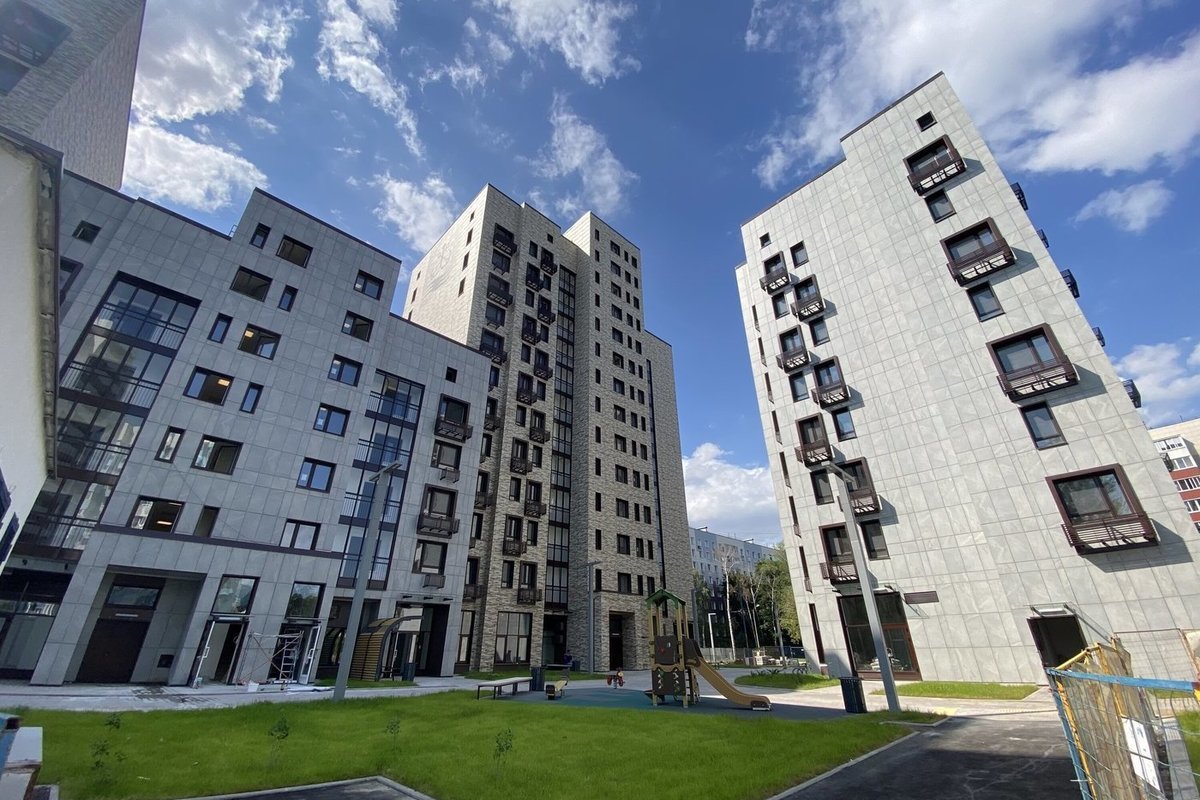The consequences of non-renewal of preferential mortgages for new buildings are named
[ad_1]

Demand will collapse and prices could drop by 10 percent
The mortgage market is preparing for change. Apparently, it will seriously narrow before the end of the year: the volume of housing loans could collapse by 30% for several reasons, including weak demand, high prices per square meter and tightening lending conditions from the Central Bank. Plus, at the end of June, the super-popular preferential state program at a rate of 8% for new buildings expires. In its current form, it will definitely not be extended.
A reduction in issuances by a third (to 5.4 trillion rubles) will be comparable to the situation in 2015, when the market fell by 34%. Moreover, last year banks provided citizens with mortgage loans worth a record 7.8 trillion rubles, note analysts from the Expert RA rating agency. To prevent further overheating of the market, in December the government significantly adjusted the terms of preferential mortgages for new buildings. The changes affected both borrowers (the maximum loan size was halved to 6 million rubles, and the minimum down payment increased from 20% to 30%) and banks (the size of the loan subsidy decreased by 0.5 percentage points).
The state program for the “primary” sector was introduced during the covid pandemic, and as a massive, universal anti-crisis measure, it was supposed to support the population and the construction industry. Since the task has been completed, there is no need to extend this type of preferential mortgage, says Alexey Yakovlev, director of the financial policy department of the Ministry of Finance. The fate of the IT mortgage, valid until the end of 2024, which allows employees of accredited companies to obtain a loan at a rate of up to 5%, also remains in question. During its operation, over 59 thousand housing loans were issued in the amount of 523 billion rubles. But, being targeted, IT mortgages are fundamentally different from the program for new buildings. And she’s not the only one.
“As far as I know, almost all targeted programs have already been extended until the end of 2030: these are, first of all, Far Eastern mortgages, Arctic mortgages, family mortgages,” says Konstantin Aprelev, vice-president of the Russian Guild of Realtors. – Another thing is that the federal budget may not have enough funds for their systemic financing, unlike last year, when there was money for this. However, the regions can help here.”
Now the authorities are clearly trying to avoid a repetition of the events of August-November last year, when, due to a stepwise increase in interest rates (following the key rate of the Central Bank), demand in the secondary and primary housing markets was constantly heating up. This ultimately greatly unbalanced the market. Developers, of course, benefit from a situation that accelerates sales. Probably, Aprelev argues, in the months remaining until July 1, the logic of their marketing actions will be subordinated to solving one problem – how to intercept the buyers remaining on the market for new buildings. Taking into account the fact that the number of transactions carried out there is steadily declining, some developers may now reduce prices, which have become prohibitive for the population even under preferential programs.
“There is no secret in the non-renewal of preferential mortgages relating to new buildings: this was discussed back in January,” says financial expert and real estate market analyst Alexey Krichevsky. – Accordingly, there will be no consequences for the market. Yes, at some point there will be a certain rush demand, but it will not have too much of an impact on the results of 2024, since people will only snap up everything that is in bad shape in June. Prices will increase by a couple or three percent at most, and in the conditions of bargaining, developers will probably reduce them.”
Should you rush to take out a preferential mortgage now? According to Krichevsky, everything depends on the goal that a person sets for himself. If he does not plan to repay the loan ahead of schedule and will pay it off for 7-10 years, then it is definitely worth thinking about: a conditional 50 thousand monthly payment today and 50 thousand in five, and even more so ten years are completely different money. They will be much softer on your wallet. But taking a loan solely for the sake of a low rate is at least strange, and at most irrational.
“Since until now the mortgage market has been based on new buildings, after the termination of the program with state support, demand will begin to decline,” says Valery Tumin, director of Russian and CIS markets at Fam Properties. – The government is interested in this: it needs to save budget funds. The forecast for a 30% drop in sales this year is quite realistic. Well, prices in the next quarter may decrease by 10%.”
[ad_2]
Source link






